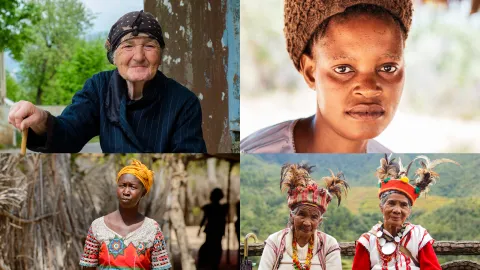The ATOM Coalition launches health financing case studies focusing on Georgia, Kenya, the Philippines and Zambia
The UICC-led Access to Oncology Medicines (ATOM) Coalition has launched its first series of Health Financing Case Studies, providing insights into how low- and lower-middle-income countries (LLMICs) are financing cancer care – and where targeted adjustments can strengthen access to essential medicines and diagnostics.

The UICC-led Access To Oncology Medicines (ATOM) Coalition has proudly launched its first Health Financing Case Studies examining how low- and lower middle-income countries (LLMICs) are addressing cancer financing within the broader context of universal health coverage. Given the high financial toxicity related to out-of-pocket payments for cancer care, the case studies underscore the importance of including essential oncology medicines and diagnostics into UHC.
The new case studies, focused on Georgia, Kenya,The Philippines and Zambia, offer timely insights into country implementation and good practices. Based on the review, the case studies advance policy recommendations for strengthening financing systems for sustainable access to oncology medicines.
The launch of ATOM’s first series of case studies represents an important step in aligning financing systems with the realities of oncology care in LLMICs.
“Cancer is a global crisis – but its burden is not shared equally. By 2030, 75% of cancer-related deaths are expected to occur in LMICs, where access to life-saving treatment remains limited. These case studies identify best practices and critical gaps, guiding the Coalition and its partners in shaping evidence-based, sustainable financing strategies.”
– Sarbani Chakraborty, Technical Advisor, Health Financing for the ATOM Coalition.




Last update
Thursday 03 July 2025
